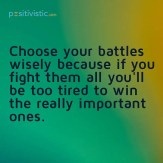Everyone has an opinion on everything. This seems to be especially true when it comes to schools. Unfortunately, so often, the people with opinions also have an agenda, and it’s not always positive. Whether it’s an angry parent venting on social media, TEA labeling schools without telling the whole story, or school rating websites making judgments based on what they can glean from paper, everyone has something to say with a purpose to serve. However, educators remain silent.
Maybe this is because as educators we know we have a noble job. We know we make a difference in the lives of children. We most likely were compliant, rule-followers in school, which is often why we became a teacher, and therefore we believe that everyone will play nicely in the sandbox. It would make sense that when it comes to teaching children, this role would be respected, honored, and of course, no one would seek to harm.
Unfortunately, this is not the case. In so many instances, our world has become about the survival of the fittest and finding ways to make money. Schools now compete for students which means competing for the dollars needed to educate them. I will be honest, not one of my principal education classes covered marketing and advertising, but sometimes, it feels like this is a required skill in campus leadership.
Regardless of all of this and people’s opinions, whether or not you are a master of social media or advertising, someone is telling your story. If there is silence, someone will fill in the emptiness with their opinions, good or bad. Unfortunately, human nature leans towards negative. According to Psychology Today(2003), Hara Marano states our brains are negatively biased, which is why smear campaigns tend to outdo positive ones. Our brain will react more strongly to negative stimuli than positive. The research shows that our brains need at least five positive interactions to counteract just one negative stimulus. I think this is why we as campus leaders must be prepared to create the narrative for ourselves. Not only must we share our journey, but we must also recognize that to achieve the positive ratio, we must enlist the help of others and prepare our teachers to do the same.
It’s no longer enough to say, “that’s just not my thing.” We have to find ways to share the greatness of our schools. Using a Twitter hashtag can be powerful. Twitter allows quick, powerful posts in 280 characters to share a snippet of something great going on at a school. Additionally, if a campus uses the hashtag, anyone on the campus can share and then everyone’s posts can be seen by anyone who searches that hashtag without having to follow every person in the school. I will be honest; Twitter wasn’t my thing when I became a principal. It is now. Think about how many positives can be sent out in a matter of minutes, much less a school day. At my campus, not only do we use our #WeAreDegan every year to tell our story, we often use supplemental hashtags that tell the story of our annual focus theme. Last year, we also included #gameon #levelup to show how we were improving. This year is all about #makingmagichappen for our students.
Pictures are powerful in helping to reach the brain’s reactors. Whether Twitter, Dojo, Facebook, or Instagram, a picture really does say a thousand words. For parents or your community, there is no better way to give them a glimpse of what is going on inside your school. You can share in an instant the joy on a child’s face when they overcome a challenge or the rituals and routines that make your school special. On my campus, we celebrate every Friday as a campus. We celebrate our students as they demonstrate grit, growth mindset and a “college-ready attitude.” But who would know this if they weren’t there? For Degan elementary, we tweet about it. Videos on social media and Youtube can help your stakeholders feel first hand what students experience. It really isn’t as daunting as it seems and when parents and community feel a part of what you are doing, they tend to speak up for you!
Another powerful way to communicate is blogging. I think this is the one that many find intimidating, I know I did when I first began. I worried about people judging me or not reading at all. I had to reach the place where I just let my words be my purpose and not let it be about how many “likes” I could get. When you blog, you give people insight into your values and beliefs and this can create trust. For many, insight into who you are as a leader helps them to buy into what you are “selling” about your school. If they feel connected to you, they are less likely to be distracted by negativity. If nothing else, if constituents feel like they know you or that you are open, they are more likely to contact you to discuss issues rather than assume and fill that space of the unknown with negative assumptions. It doesn’t have to be long, it just has to speak from your leadership heart.
As leaders, we have to step up. We have to tell our story. Not only that, we have to help others understand a new vision of public education that prepares students for the 21st Century and a world that is very different than the education most Americans have had that has been deeply entrenched in regurgitation of information, strategies, and high-stakes testing. We have to begin a new narrative of student engagement, problem-solving, and higher level thinking that prepares students for jobs that may not even exist as well as conquering issues that we couldn’t even imagine. After all, if you don’t tell this story, who will?
References
Marano, H. E. (2016, June 9). Our Brain’s Negative Bias. Retrieved October 18, 2018, from https://www.psychologytoday.com/us/articles/200306/our-brains-negative-bias






























